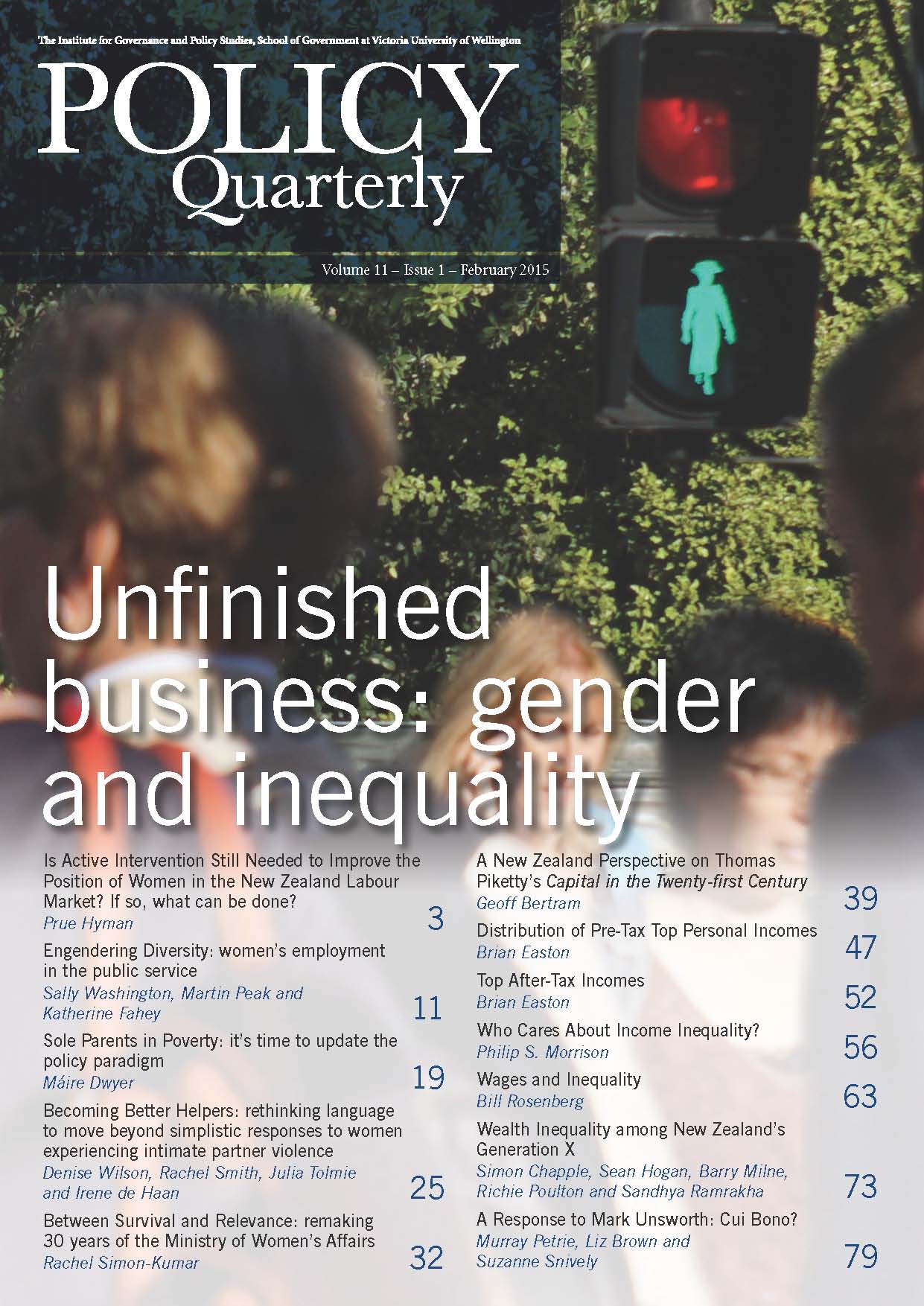Wealth inequality among New Zealand’s Generation X
DOI:
https://doi.org/10.26686/pq.v11i1.4520Keywords:
post-baby boom generation, higher education system, student loans, Household Savings Survey, Survey of Family Income and Employment (SoFIE), socio-economic statusAbstract
Generation X, denoting the post-baby boom generation, is a term typically used to describe those born between the mid-1960s and early 1980s. The well-known Dunedin Multidisciplinary Health and Development Study cohort, born in 1972/73, are therefore near the middle of Generation X. The Dunedin cohort was born in fairly stable social circumstances. As children they experienced the social changes of 1970s New Zealand – the rise of sole-parent families, a deteriorating job market and a stagnating economy. They went through the economic reforms of the 1980s as high school students, and attended university or entered the labour market during the recession of 1989–92. They were faced with user pays in the higher education system, first through full fees and then student loans. They face the prospect of being more reliant on their own resources for providing for their living standards during their retirement than previous generations.
Downloads
Downloads
Published
Issue
Section
License
Permission: In the interest of promoting debate and wider dissemination, the IGPS encourages use of all or part of the articles appearing in PQ, where there is no element of commercial gain. Appropriate acknowledgement of both author and source should be made in all cases. Please direct requests for permission to reprint articles from this publication to Policy-Quarterly@vuw.ac.nz.



